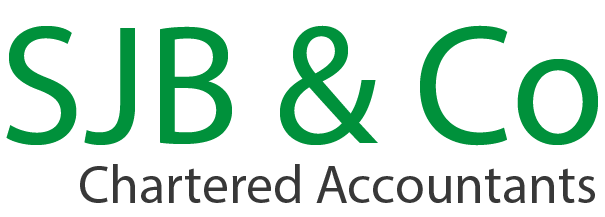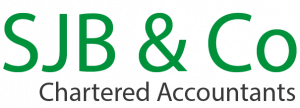Opportunities to save tax.
Some of the ideas shared in the following check list may provide you with tax saving opportunities if implemented before 5 April 2021. This year, more than at any previous time, we need to take advantage of savings as the COVID virus continues to impact on the economy and personal finances.
Actions to take.
- Scan the list,
- Highlight those items that would seem to have relevance, and
- Call so we can discuss what needs to be done to secure any tax saving benefits before 5 April 2021.
This article is not personal advice. No actions should be taken without taking professional advice, please call us to discuss how any of the ideas below can be applied to your circumstances.
Income Tax – avoiding higher rates of tax.
You will no doubt be aware that the three rates of income tax are 20%, 40% and 45%. What you may not know is that your personal tax circumstances can boost these rates. For example, if your taxable income exceeds £100,000 you could lose your personal tax allowance and for 2020-21, this will increase the marginal rate of tax applied to earnings between £100,000 and £125,000 to 60%.
The following notes highlight some of the tax savings ideas that you may be able to consider.
Capital Gains Tax (CGT)
CGT is calculated at fixed rates on non-residential property disposals (10% or 20%) but CGT payable on the sale of a second home will be either 18% or 28%.
There are certain assets that you can sell without paying CGT. They include:
CGT rates for 2020-21 are:
If you pay income tax at higher rates (40% or above) you will pay CGT at:
If you pay income tax at basic rates (20%) you will pay CGT at:
To qualify for the lower rates your taxable income plus the chargeable gain must be within the basic rate income tax band. If the gain is part under and part over this limit you will pay CGT at the lower and higher rates.
CGT Check List for 2020-21
Work though the check list that follows and if any apply to your circumstances call to discuss your options.
Inheritance tax (IHT)
IHT is payable when a person dies, and their estate exceeds certain limits. It is also potentially payable on gifts made by an individual during their lifetime if the gift was made in the seven-year period prior to their death.
Small lifetime gifts can be exempt. These include:
- Gifts made out of your disposable income, Christmas or birthday presents for example.
- Other gifts up to £3,000 per tax year are exempt from IHT. An unused allowance can be carried forward for just one year.
- Wedding or civil ceremony gifts of up to £1,000 per person (£2,500 for a grandchild or great grandchild, £5,000 for a child).
- Payments to help with another person’s living costs, e.g., an elderly relative or a child under 18.
- Gifts to charities and political parties.
Larger lifetime gifts are potentially chargeable to IHT. The potential liabilities are:
- IHT is payable at 40% on gifts you make within 3 years of your death.
- Gifts made between 3 to 7 years of your death are tapered. The effective rate of IHT charged reduces from 40% down to 0%.
Other situations that will affect your estate’s liability to IHT include:
- Any assets left to your spouse are free of IHT.
- If the value of your estate is below £325,000, no IHT is payable.
- If your previously, deceased spouse did not use their £325,000 threshold, you can add this to your exempt threshold. Effectively, in these circumstances, your estate would pay no IHT if valued at less than £650,000.
- A new nil-rate band has been available from April 2017. Called the main residence nil-rate band, it applies when a residence is passed on death to a direct descendant. This additional relief makes it easier for families to pass on the family home without a tax charge. The relief will amounts to £175,000 for 2020-21.
IHT Check List for 2020-21
Work though the check list that follows and if any apply to your circumstances call to discuss your options.
- Make sure you have an up-to-date Will. Dying without a Will can cause all sorts of problems for your surviving family as well as affecting your IHT liabilities.
- Make the most of the annual gift exemptions. You can only carry forward the £3,000 unused annual allowance for one year.
- If you own a business, take advice on the potential IHT risks and the availability of Business Property Relief. This planning should probably be combined with consideration of the continuing ownership and control of your business after your death.
- If possible, reduce your exposure to IHT by transferring assets out of your estate. Bear in mind that these transfers, lifetime gifts, may not fully reduce your IHT liability until the 7-year period after that gift is made has expired.
- You can reduce the rate of IHT on some assets from 40% to 36% if you leave more than 10% of your estate to charities.
- If your estate includes significant property holdings this may mean that your executors have to sell property in order meet IHT payable. It may be prudent to leave instructions on which property(ies) to sell.
- If your circumstances change, for example, if you divorce or re-marry, make sure you make a new Will and reconsider your IHT planning to make sure it is still relevant to your changed circumstances.
Act Now
Many of the suggestions we have made in the above check lists time-out – are no longer effective – unless you act before 6 April 2021.
If you have spotted any item on our check list that strike a chord, call now so we can discuss your options. Due to lockdown considerations this will need to be a telephone call initially, followed by possible online conversations.
DO NOT ACT on any of the matters outlined in this document without taking professional advice.
For more information or to discuss any issues raised above please contact Simon Bell by phone on 01376 571358 or email [email protected] . This article is written in general terms and therefore cannot be relied on to cover specific situations; applications of the principles set out will depend on the particular circumstances involved and it is recommended that you take professional advice before acting or refraining from acting on any material in this article.






